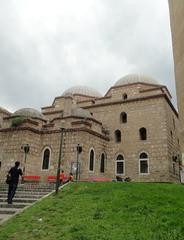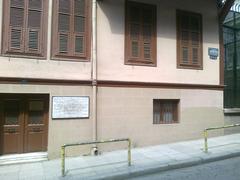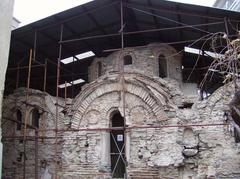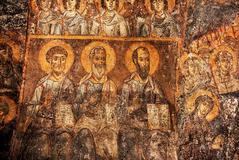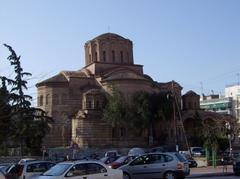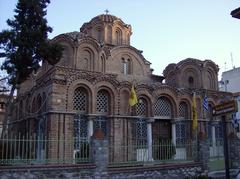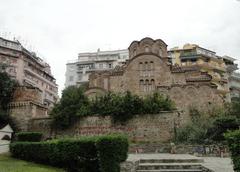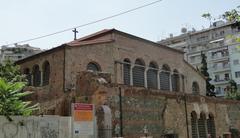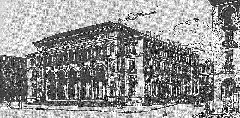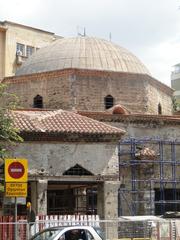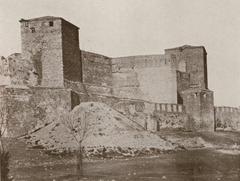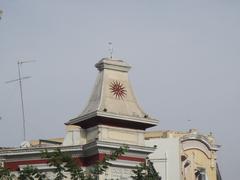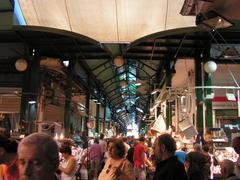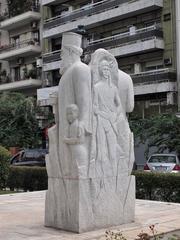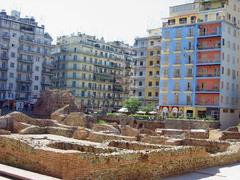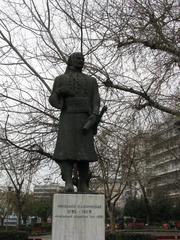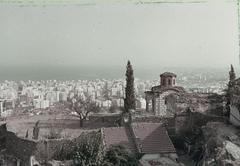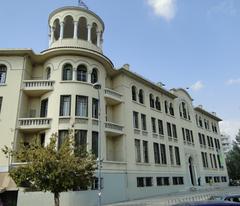Visiting Pasha’s Gardens: Hours, Tickets, and Historical Insights
Date: 23/07/2024
Introduction
Nestled within the historical landscapes of Thessaloniki, Greece, Pasha’s Gardens, or “Kipos tou Pasha,” offers visitors an enchanting blend of history, culture, and nature. Established during the late Ottoman era, these gardens have evolved from a private retreat for an Ottoman official into a cherished public space that embodies the rich, multicultural heritage of Thessaloniki. As a site reflecting significant urban development from the 19th century, Pasha’s Gardens is a testament to the city’s architectural and cultural synthesis, featuring unique structures such as kiosks and water features that harmonize Ottoman and Greek styles (Thessaloniki Tourism). For those seeking tranquility amidst historical intrigue, Pasha’s Gardens is an ideal destination, offering free admission and accessibility to all visitors. This comprehensive guide will delve into the historical background, visitor information, and special features of Pasha’s Gardens, ensuring a well-rounded and enriching experience for all who visit.
Table of Contents
- Introduction
- Historical Background of Pasha’s Gardens, Thessaloniki
- Visitor Information
- Special Features
- FAQ
- Conclusion
- Sources
Historical Background of Pasha’s Gardens, Thessaloniki
Ottoman Era Origins
Pasha’s Gardens, established during the Ottoman period (1430-1912), are believed to have been developed in the late 19th century. Named after a high-ranking Ottoman official, or “Pasha,” these gardens reflect the period’s significant urban development and the Ottoman Empire’s influence on the city’s architecture and urban planning.
Architectural Features
The gardens feature unique architectural elements blending Ottoman and local Greek styles. Notable are the small, domed structures called “kiosks,” used for various purposes such as rest areas and lookout points. These kiosks, along with pathways and water features like fountains and small ponds, embody the serene and contemplative environment typical of Ottoman garden design.
Historical Significance
Pasha’s Gardens represent a period when Thessaloniki was a melting pot of cultures, with a diverse population including Greeks, Jews, Turks, and other ethnic groups. The gardens served as a public space for intercultural interaction, reflecting the city’s multicultural character and playing a role in its social life by hosting events and gatherings.
Transition to Greek Sovereignty
In 1912, Thessaloniki became part of the modern Greek state. This transition brought changes to Pasha’s Gardens, with some Ottoman elements preserved and others modified to reflect the new Greek identity. Despite these changes, the gardens have retained their historical charm and remain a popular public space.
Preservation Efforts
Recent efforts to preserve and restore Pasha’s Gardens focus on repairing architectural features and revitalizing the landscape. These initiatives aim to maintain the historical integrity of the gardens while making them accessible and enjoyable for modern visitors.
Cultural Impact
Pasha’s Gardens have had a lasting cultural impact, symbolizing Thessaloniki’s rich history and cultural diversity. They are a popular destination for locals and tourists, hosting cultural events like concerts, exhibitions, and festivals, further cementing their role in the city’s cultural life.
Modern-Day Relevance
Today, Pasha’s Gardens continue to be a beloved landmark. They symbolize the city’s historical resilience and cultural diversity, attracting visitors from around the world who explore their unique architectural features and tranquil environment. Ongoing preservation efforts ensure that Pasha’s Gardens remain a cherished part of Thessaloniki’s heritage.
Visitor Information
Visiting Hours
Pasha’s Gardens are open to the public daily from 8:00 AM to 8:00 PM. It’s recommended to visit during weekdays to avoid crowds, especially in the mornings.
Ticket Prices
Admission to Pasha’s Gardens is free of charge, making it an accessible attraction for everyone.
Travel Tips
- Best Time to Visit: Spring and autumn offer the most pleasant weather for exploring the gardens.
- Getting There: The gardens are easily accessible by public transport or a short walk from the city center.
- Nearby Attractions: Combine your visit with nearby historical sites such as the Rotunda, the White Tower, and the Archaeological Museum of Thessaloniki.
Accessibility
The gardens are wheelchair accessible, with pathways designed to accommodate visitors with mobility issues.
Special Features
Guided Tours
For a deeper understanding of the gardens’ history and significance, consider joining a guided tour. Tours are available in multiple languages and can be booked through local tourism offices.
Photographic Spots
The gardens offer numerous picturesque spots perfect for photography, including the kiosks, fountains, and scenic pathways.
FAQ
- What are the visiting hours for Pasha’s Gardens?
- The gardens are open daily from 8:00 AM to 8:00 PM.
- How much are tickets to Pasha’s Gardens?
- Admission is free of charge.
Conclusion
Pasha’s Gardens in Thessaloniki stands as a vivid symbol of the city’s historical resilience and cultural diversity. From its origins during the Ottoman era to its current status as a beloved public space, the gardens encapsulate a unique blend of historical significance and natural beauty. Ongoing preservation efforts continue to maintain the gardens’ historical integrity while making them accessible and enjoyable for modern visitors. Whether you’re drawn by the serene environment, the architectural marvels, or the rich cultural heritage, Pasha’s Gardens offers something for everyone. By planning your visit with the tips provided, you can ensure a memorable and enriching experience, exploring not only the gardens but also the adjacent historical sites such as the Rotunda, the White Tower, and the Archaeological Museum of Thessaloniki.
Call to Action
Stay updated with the latest travel tips and guides by following us on social media and downloading our mobile app Audiala. Explore more articles on our website for comprehensive travel experiences across Thessaloniki and beyond.
References
- Thessaloniki Tourism, 2024, Thessaloniki Tourism
- Audiala, 2024, Audiala
